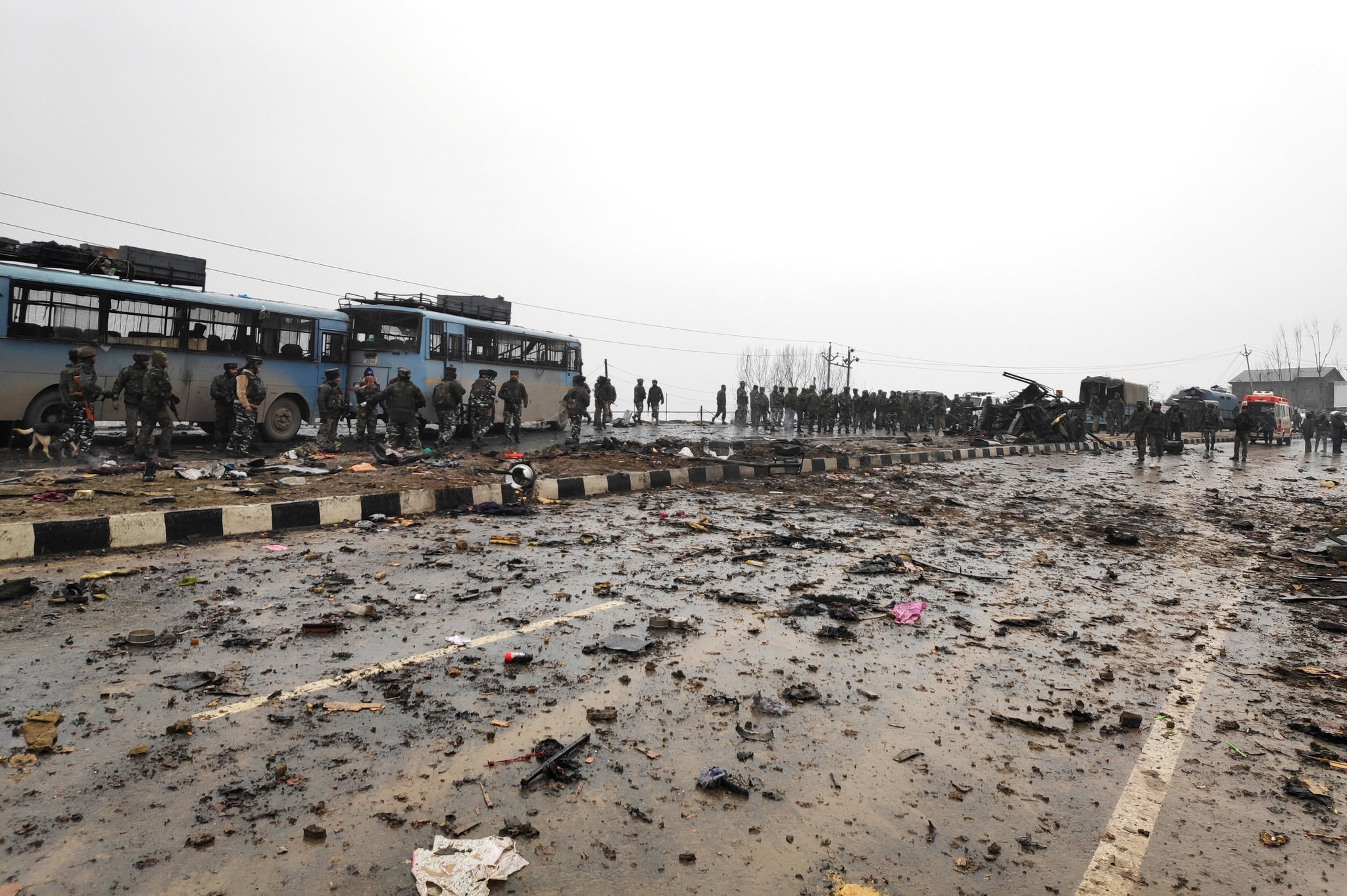


Haryana Chief Minister Nayab Singh Saini has stated that there is widespread support for the implementation of the Uniform Civil Code (UCC) in India. He confirmed that discussions are ongoing and when the time is right, the UCC will be implemented. This statement comes after Uttarakhand became the first state to implement the UCC, fulfilling a key commitment made by the BJP ahead of the 2022 Assembly elections. The UCC law, which promotes equal laws for all citizens, aims to simplify legal processes related to marriage and ensure social harmony.
Uniform Civil Code: A Journey Towards Social Harmony in India
Introduction
The Uniform Civil Code (UCC) has emerged as a highly debated topic in India, gaining significant attention recently. The concept aims to create a common set of personal laws governing all citizens, regardless of their religion or community. This article explores the background, current developments, and frequently asked questions (FAQs) related to the UCC.
Historical Background
The idea of a UCC was first introduced during the Indian independence movement. The Constituent Assembly, tasked with drafting the Indian Constitution, considered enacting a UCC but could not reach a consensus. The Constitution, however, included Article 44 in the Directive Principles of State Policy, which states that "The State shall endeavour to secure for the citizens a uniform civil code throughout the territory of India."
Recent Developments
In recent years, the issue of UCC has gained renewed momentum. Several states have expressed support for its implementation, including Haryana, Uttarakhand, and Karnataka. In 2023, Uttarakhand became the first state to implement a UCC law, fulfilling a promise made by the ruling Bharatiya Janata Party (BJP).
Rationale for a UCC
Proponents of UCC argue that it will promote equality before the law, eliminate discrimination based on religion or community, and simplify legal processes related to marriage, divorce, inheritance, and adoption. It is also seen as a step towards national integration and social harmony.
FAQs
1. What will be the impact of UCC on personal laws?
UCC will replace existing personal laws based on religion or community. It will provide a uniform set of rules for all citizens in matters such as marriage, divorce, inheritance, and adoption.
2. Will UCC affect religious freedom?
UCC does not aim to interfere with religious beliefs or practices. It focuses on providing a common legal framework for civil matters, ensuring that all citizens are treated equally under the law.
3. Why has it been challenging to implement UCC in India?
Implementing UCC has been politically sensitive due to concerns from religious minorities. Some fear that their customs and traditions will be compromised or that the UCC will be biased against certain communities.
4. What are the benefits of UCC?
UCC can promote equality, reduce discrimination, simplify legal processes, and foster national integration. It aims to create a fairer and more just society for all citizens.
5. What is the future of UCC in India?
The implementation of UCC is an ongoing process that requires consensus and dialogue. While it has faced challenges, the recent developments and growing support for a UCC suggest that it may become a reality in the future.
Conclusion
The Uniform Civil Code is a complex issue that has the potential to shape India's future. While discussions and debates continue, the implementation of UCC remains a significant goal towards creating a society based on equality, social harmony, and national unity.

The Indian National Congress (INC) has announced its plans to launch a month-and-a-half-long campaign in Jammu and Kashmir on April 22. The purpose of the campaign is to demand the restoration of statehood and to further the “Save the Constitution” movement. With the recent appointment of Syed Naseer Hussain as the new J&K in-charge, the party hopes to regain its lost support in the Union Territory. This campaign comes at a crucial time, as former supporters of the Congress leader Ghulam Nabi Azad have recently dissolved their party, raising questions about their political future. The Congress hopes to use this opportunity to highlight the BJP's failures in empowering elected governments and its betrayal over statehood.

Thousands of citizens in Pune are rallying together through an online petition to demand the protection of their city's hills and hill slopes from any construction. The petition is addressed to the former Pune Municipal Commissioner and Chairman of the state-appointed Committee on Bio-Diversity Park and Hill Top Hill Slopes. The citizens are concerned that the committee's review may result in allowing construction on the hills, while strict measures have already been mandated by the government to prevent it. The citizens stress the importance of preserving these natural areas for the city's ecological balance and urge the government to uphold its promise to future generations.

After the devastating terror attack in Pahalgam, Jammu and Kashmir, India has suspended the 1960 Indus Waters Treaty with Pakistan. This decision was made during a key meeting chaired by Union Home Minister Amit Shah, with discussions on potential actions being taken against Pakistan. As tensions between the two countries continue to escalate, Indian leaders have condemned Pakistan for their involvement in the attack and have vowed to take strong measures in response.

The Indian Army made its first major move since the Pahalgam terror attack on April 22, as they killed top Lashkar-e-Taiba (LeT) commander Altaf Lalli in an encounter in Jammu and Kashmir's Bandipora district. The security forces are on the hunt for the terrorists responsible for the brutal killing of 26 civilians and have launched a massive anti-terror operation. In other developments, Indian Army Chief General Upendra Dwivedi visited Srinagar for a security review meeting and the authorities demolished the houses of two suspected terrorists involved in the Pahalgam attack.

In a hearing at the Supreme Court, the bench rebuked Congress leader Rahul Gandhi for his "irresponsible" comments about freedom fighter Vinayak Damodar Savarkar. The judges highlighted the need to show respect for India's freedom fighters and questioned whether Gandhi was aware of his grandmother and Mahatma Gandhi praising Savarkar. The court also stayed an Allahabad High Court order that refused to dismiss a lower court's summons against Gandhi over his alleged remarks about Savarkar.

The Supreme Court has stepped in to warn Congress MP Rahul Gandhi over his comments about India's independence activist Veer Savarkar, staying a trial court's summons to the politician. The top court emphasized that Savarkar is a highly respected figure in Maharashtra and stated that no one would be allowed to make derogatory remarks about freedom fighters. The court also pointed out that Gandhi's family has had a history of praising Savarkar and Gandhi himself has been warned that the court will take suo motu cognizance of any such remarks. Additionally, the article also mentions an attack in Jammu and Kashmir that has led to heightened tensions between India and Pakistan.

In a successful operation by the security forces, a Lashkar-e-Taliba (LeT) terrorist associate, identified as Altaf Lalli, was killed in an ongoing encounter in the Bandipora district of Jammu and Kashmir. The encounter began after the security forces received intelligence about the presence of terrorists in the area. Two security personnel have also been injured in the exchange of fire and are currently undergoing treatment at a nearby hospital. The clash highlights the continued efforts of the security forces to combat terrorism in the region.

The Telangana-Chhattisgarh border is a hotbed of tension as security forces step up their efforts to root out Maoist activity from the region. Top Maoist leader Hidma is the target of current high-security operations, with forces strategically advancing through previously inaccessible areas. With mounting pressure, sources indicate that the hold of the Maoists in the region is gradually weakening, making for a tense and critical situation.

As the nation grapples with the aftermath of a terror attack in Pahalgam, security forces are undertaking a massive operation in the dense Karregutta hills forest to eliminate the heart of Naxal command. This operation, involving 7,000 personnel and cutting-edge technology, aims to strike a blow at Naxalism by targeting top leaders of the PLGA Battalion No. 1. This bold move by the CRPF, with the Director General personally overseeing the operation, marks a turning point in the fight against Maoist insurgency. With five Naxals already killed and more likely to come, the operation is being hailed as a decisive victory and could potentially spell the end of Naxalism in India.

The US Government has publicly criticized The New York Times for its reporting on the recent terror attack in Pahalgam, Kashmir, calling attention to the difference between the newspaper's use of "militant" instead of "terrorist." This choice of words is not only misleading but also minimizes the severity of the attack, which was claimed by a Pakistan-based group with links to Lashkar-e-Taiba. The US House Foreign Affairs Committee took to social media to point out the error and highlight the real nature of the attack, noting that it has significant implications for regional security.